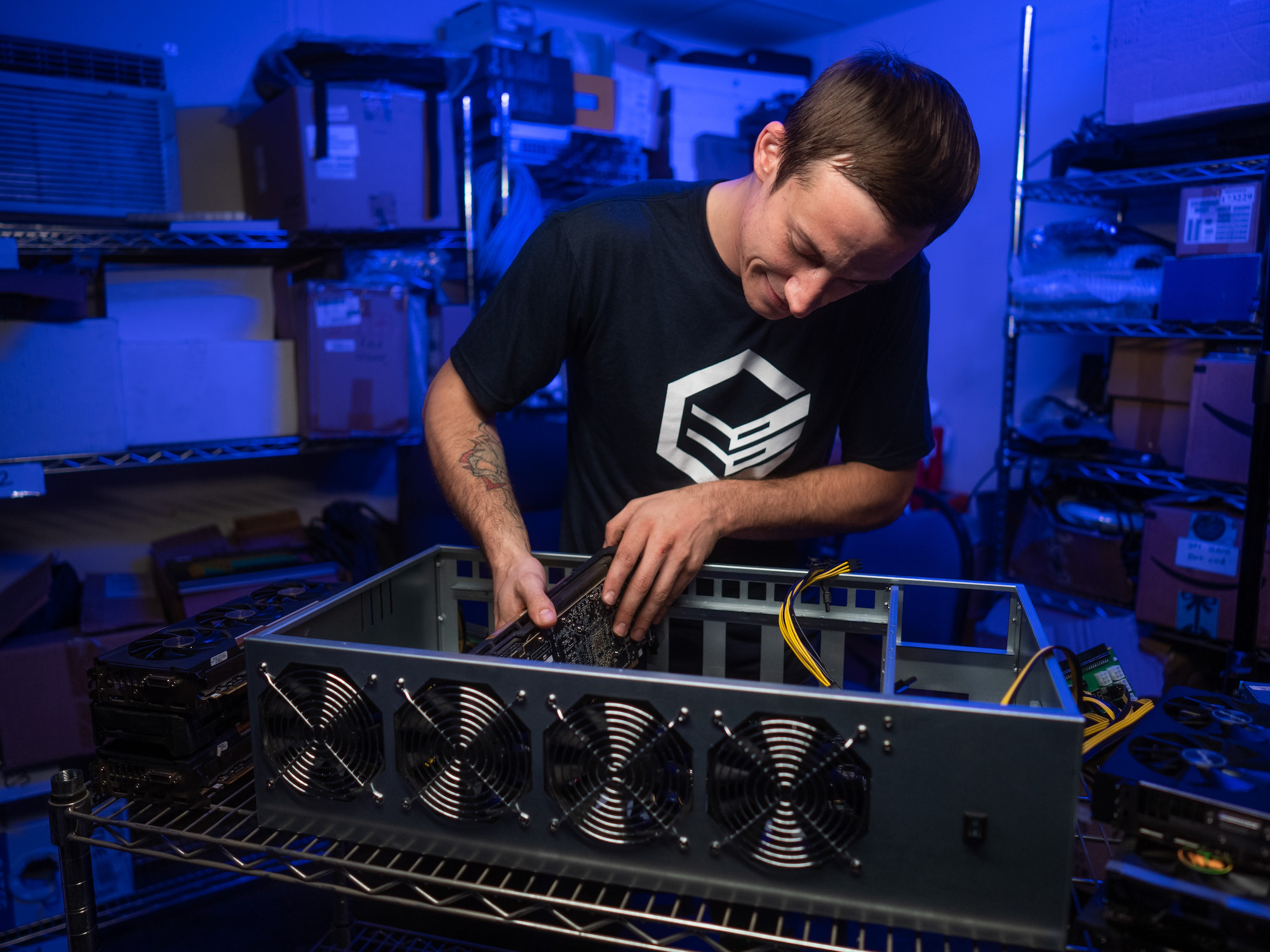
A Minnesota company is hunting for cryptocurrency on the eastern edge of the Permian Basin—with plans for a big expansion in Texas.
WHIRRRRR. Four thousand computer-cooling fans spin in unison inside a Big Spring warehouse. Clustered on eight-foot-high racks, the toaster-size machines do their thing all day and all night. They whir their whir, crunch their numbers, and they get hot. Really, really hot. The little computers’ little fans pull in cold air on one end. That air heats up as it passes over microchips that are speedily crunching algorithmic code. On the other end of the little machines, hot air is blasted out, filling an alleyway between racks. Even though massive industrial fans vent all that hot air out through the ceiling, it’s still 100 degrees in the warehouse—eight degrees hotter than it is outside on this August day.
This is a Bitcoin mine, and Bitcoin mining is hot, hard work for the machines that do it—more and more of which are being installed in Texas thanks to our combination of cheap power and wide-open spaces. This modern mining camp out here in Big Spring, which was set up in 2018, is located just off the runways at the Big Spring McMahon-Wrinkle Airport and right next to the Big Spring Correctional Center. The mining is done inside a former Coca-Cola bottling plant. Huge silver silos that once contained Coke still stand beside one end of the building. On the other end stands an even taller, orange and white control tower that long ago served Webb Air Force Base.
The mine is owned by Compute North, which is headquartered in Eden Prairie, Minnesota, and which has big plans in Texas that go beyond Big Spring. The company expects to open three more cryptocurrency mines in the state in the coming year, joining in on a rush underway across the state. “Texas is kind of the center of the universe,” says Dave Perrill, the CEO of Compute North. “The regulatory climate, the business-friendly approach and business philosophy, and obviously the energy markets all combined to just be fantastic for us.”
It’s apparently fantastic for other mining companies, too. Texas Blockchain Council president Lee Bratcher, who is also a professor specializing in blockchain technology for real estate at Dallas Baptist University, estimated earlier this year that there were five or six large-scale mining operations and more than twenty small-scale mines across Texas. Mines have set up in sparsely populated communities like Big Spring, which is forty miles east of Midland; Dickens County, which is seventy miles east of Lubbock; and Rockdale, which is about forty miles west of College Station and is also the epicenter of the boom in the state.